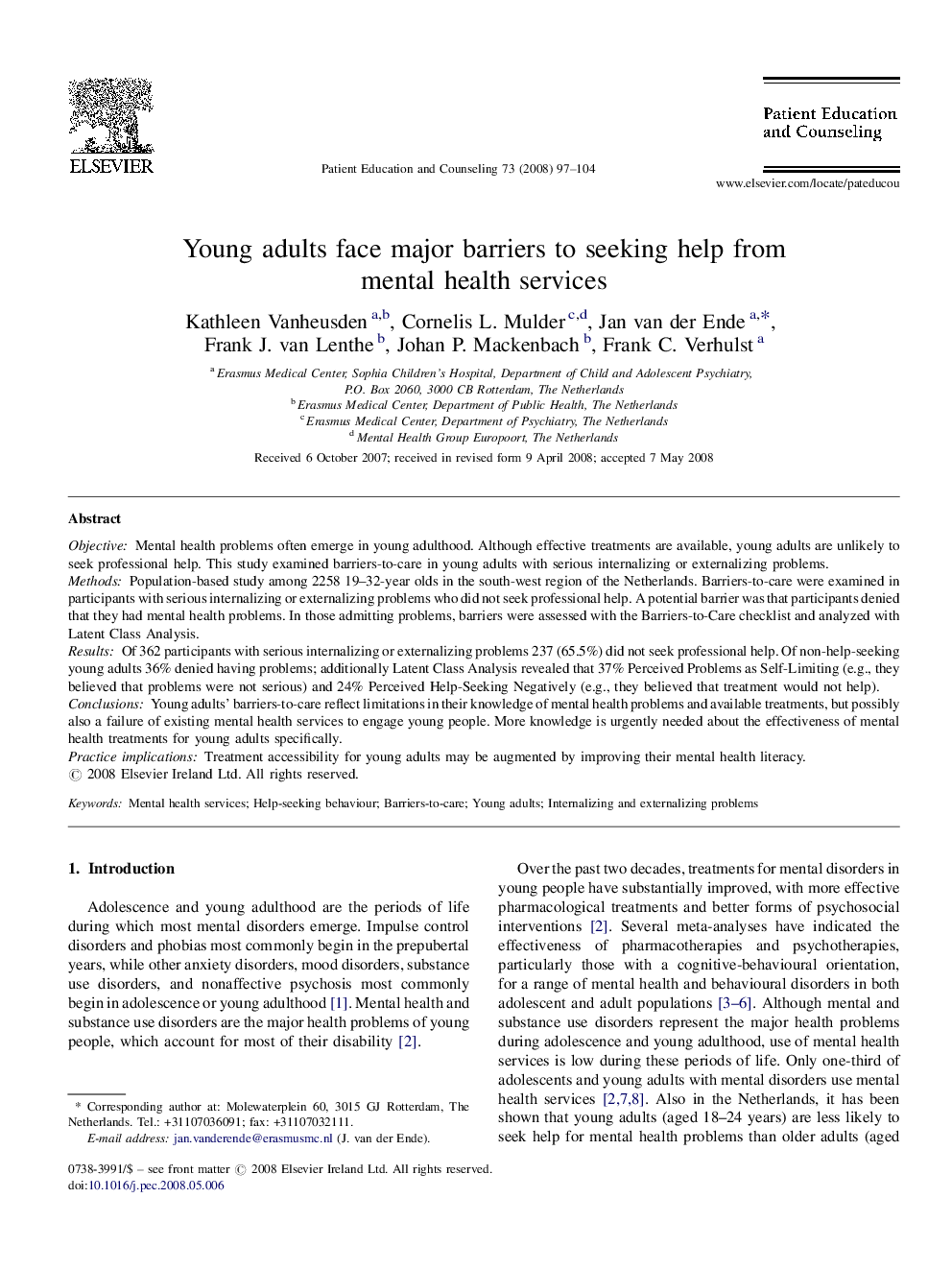| Article ID | Journal | Published Year | Pages | File Type |
|---|---|---|---|---|
| 3815072 | Patient Education and Counseling | 2008 | 8 Pages |
ObjectiveMental health problems often emerge in young adulthood. Although effective treatments are available, young adults are unlikely to seek professional help. This study examined barriers-to-care in young adults with serious internalizing or externalizing problems.MethodsPopulation-based study among 2258 19–32-year olds in the south-west region of the Netherlands. Barriers-to-care were examined in participants with serious internalizing or externalizing problems who did not seek professional help. A potential barrier was that participants denied that they had mental health problems. In those admitting problems, barriers were assessed with the Barriers-to-Care checklist and analyzed with Latent Class Analysis.ResultsOf 362 participants with serious internalizing or externalizing problems 237 (65.5%) did not seek professional help. Of non-help-seeking young adults 36% denied having problems; additionally Latent Class Analysis revealed that 37% Perceived Problems as Self-Limiting (e.g., they believed that problems were not serious) and 24% Perceived Help-Seeking Negatively (e.g., they believed that treatment would not help).ConclusionsYoung adults’ barriers-to-care reflect limitations in their knowledge of mental health problems and available treatments, but possibly also a failure of existing mental health services to engage young people. More knowledge is urgently needed about the effectiveness of mental health treatments for young adults specifically.Practice implicationsTreatment accessibility for young adults may be augmented by improving their mental health literacy.
